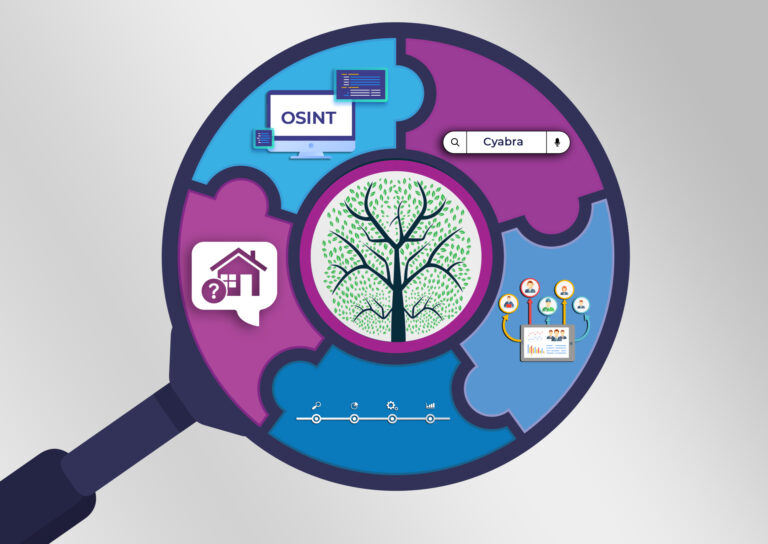Following the global rollout of the COVID-19 vaccine, the world has experienced an alarmingly high level of disinformation campaigns on social media platforms. Bad actors and fake profiles are pushing a negative anti-vaxxer narrative regarding the vaccine, and its alleged side effects.
Within the UK, black, Asian and minority ethnic groups (BAME), have been targeted with misinformation campaigns stating that there are traces of pork and alcohol in the vaccine.
Cyabra analyzed and sampled the online discourse of the UK population regarding the vaccine on social media. Through sampling almost 66,000 profiles over Facebook and Twitter, Cyabra was able to detect nearly 6500 fake profiles spreading disinformation about the contents of the vaccines, and communities of profiles that spread claims of the vaccines containing a micro chip.
Findings
Cyabra analyzed and scanned social media groups and pages that are a part of the vaccine disinformation discourse in the UK on Twitter and Facebook and analyzed the online behavior, connections, and messaging of the profiles that interacted with the discourse. From the sample of 65,452 profiles scanned, Cyabra found 6,425 fake profiles (9.8%) and 18,865 bad actors (28.8%) who are spreading negative narratives about the vaccine.

Understanding the Authenticity of the Online Narrative
To identify the key players involved in the social media discourse, Cyabra categorizes profiles by engagement, text, and connectivity to other profiles. Cyabra aggregates all relevant users, categorizing them by their name, sentiment (positive, neutral, and negative), profile authenticity status, their maximum exposure (which shows the potential reach), and their engagement (Likes/Replies/Shares). Given the sheer amount of data involved when evaluating online narratives, it is integral to not only organize the flow of information, but also to prioritize the most important narratives within the online ecosystem. Cyabra gives the exact link of the post identified while also providing users important information about the false user linked to it.

Fake Narratives
The Vaccine Contains Eggs
Cyabra analyzed the social media discourse surrounding the disinformation about the vaccine in the UK and identified many profiles that are spreading false content and conspiracies against the vaccine. One conspiracy theory is that the vaccine contains eggs in it, so people on vegan diets cannot receive it. Below are examples of the content of the profiles from the UK.

The Vaccine Contains Pork and Alcohol
Cyabra also found several profiles that are spreading misinformation about the vaccine containing alcohol and pork, so people of certain religions refuse to take it. Below are examples of the content.

Impactful Fake vs. Real Profile
Cyabra analyzed the online behavior of the scanned profiles and categorized them by their number of engagements. Cyabra detected several real and fake profiles that are spreading disinformation about the vaccine and are getting the highest number of engagements (Likes, Comments and Shares).
Below are examples of the real and fake profiles with the highest number of engagements the platform scanned.
Real Profile
Jamison Scott || 275 engagements (233 likes, 42 replies)
The real profile is spreading content against the government’s will to vaccinate all of the citizens. Also, he is spreading content against the lockdowns.

Impactful Fake vs. Real Profile
Jamison Scott || 166 engagements (100 likes, 66 replies)
The fake profile is spreading content against the COVID- 19 vaccine.

Fake Profile Content Creator
Cyabra analyzed the scanned content relating to the vaccine in the UK. Below is the fake profile Cyabra discovered with the most UK vaccine-related content. The profile’s name is Andrew Hand, who is spreading a large amount of content regarding the vaccine, claiming the vaccine companies didn’t conduct thorough testing regarding the vaccine’s efficacy.

Connections Between Fake vs. Real Profile
Cyabra also analyzes the connections between real and fake profiles and divides them into communities. Cyabra’s “community” function highlights interlock profiles and how they are connected. The community below is based on followers. The profiles inside this community follow each other to a high degree. Often, a community of profiles following each other indicates they are spreading the same message.

Group Messaging
The community contains 245 profiles, 135 (55.1%) are bad actors (spreading content with negative sentiment on social media). The communities’ profiles were spreading negative content against the vaccine, claiming that it contains a chip in it. Several profiles claimed that Elon Musk is responsible for this. Below is the community displayed on Cyabra’s platform, and examples of the content that was shared within.

Conclusion
Cyabra analyzed the social media discourse of the vaccine-disinformation in the UK, aiming to understand the public’s opinion. Cyabra scanned key phrases and hashtags on Facebook and Twitter and detected an orchestration of real and fake profiles on both social media platforms, spreading disinformation regarding the the vaccines. These campaigns included the following topics:
- The vaccine contains a microchip
- The vaccine has traces of pork, hence, religious group are refusing to take the vaccine
- The vaccine contains alcohol, hence, religious group are refusing to take the vaccine
Lastly, Cyabra identified the main leaders spreading fake information, analyzed their online behavior and measured their level of impact.
These fake campaigns can drive dangerous action within targeted communities online. Cyabra’s technology is able to detect coordinated misinformation campaigns at early stages to protect the public from taking action on false narratives, and to prevent the “snowball effect” of growing conversations from taking place .


